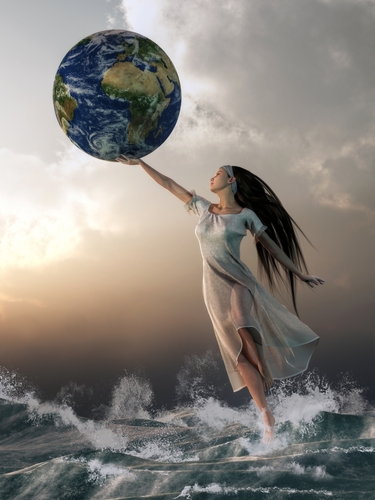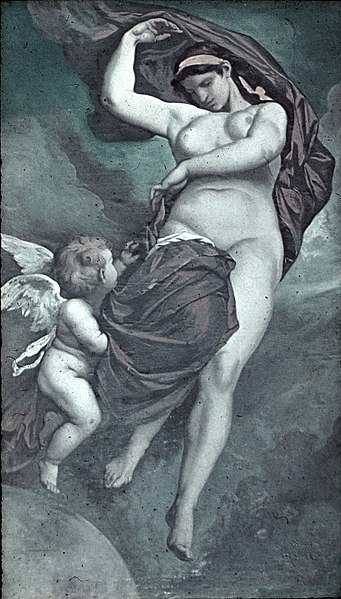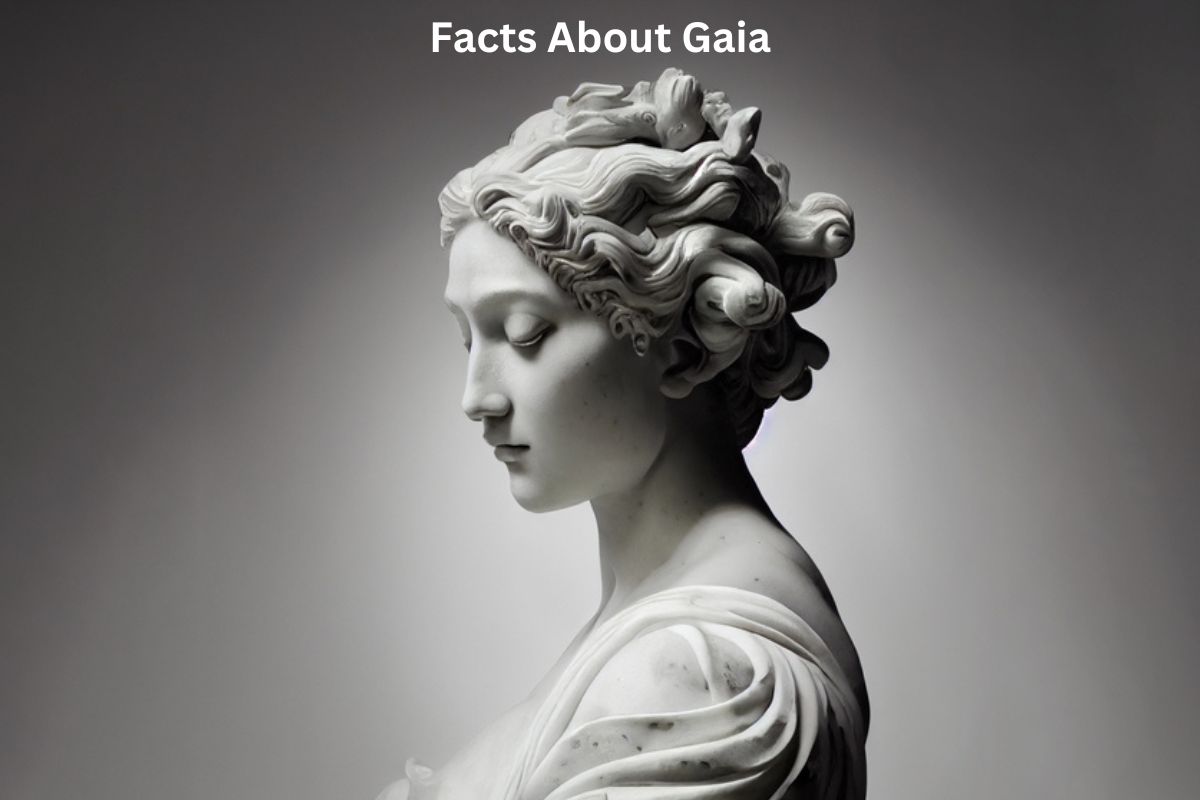Gaia is a prominent figure in Greek mythology, revered as the primordial goddess who personifies the Earth. She is depicted as a matronly figure, often shown standing or reclining on the Earth, symbolizing her close connection to nature.
Gaia is associated with fertility, growth, and abundance, and she is revered as a nurturing and life-giving force. She played a pivotal role in the overthrow of Uranus by the Titans and later supported her grandson Zeus in his successful rebellion against Cronus.
Gaia is honored in ancient Greek religious ceremonies and festivals, and she is associated with oracles and prophetic powers.
Her significance extends beyond mythology, as her name has influenced scientific terms related to the Earth and its systems.
Gaia Facts
1. Gaia is a primordial Greek goddess
In Greek mythology, Gaia is considered one of the primordial deities who emerged at the beginning of creation.
Also Read: Facts About Hercules
She is often referred to as the personification of the Earth itself. Gaia’s existence predates the rise of the Olympian gods and holds a significant place in Greek cosmogony.

2. She personifies the Earth
Gaia represents the physical embodiment of the Earth and is associated with its landscapes, flora, and fauna. She is often depicted as a motherly figure, symbolizing the nurturing and life-giving aspects of the planet.
Also Read: Minotaur Facts
Gaia’s portrayal reflects the ancient Greeks’ reverence for the Earth and their understanding of its vital role in sustaining life.
3. Gaia is depicted as a matronly figure
Artists and poets often portrayed Gaia as a mature, matronly goddess. She is depicted in various forms, but commonly shown reclining or standing on the Earth, with her body and limbs adorned with natural elements such as foliage, plants, and flowers.
This imagery represents her connection to the Earth and emphasizes her nurturing and protective qualities. The portrayal of Gaia as a matronly figure underscores her role as the ancestral mother of all life on Earth.
4. She is associated with fertility, growth, and abundance
Gaia is closely associated with the concepts of fertility, growth, and abundance in Greek mythology. As the personification of the Earth, she is believed to be the source of all life and the provider of sustenance.
Gaia’s association with fertility extends to the land, where her presence ensures the flourishing of crops and the abundance of resources. She embodies the cycles of nature and the regenerative powers of the Earth.
5. Gaia is the mother of various divine beings
In Greek mythology, Gaia had numerous children with different deities. Her most well-known offspring include the Titans, who are the predecessors of the Olympian gods, such as Zeus, Hera, and Poseidon.
Gaia’s other notable children include the Giants, who were often portrayed as formidable and powerful beings, and the Cyclopes, known for their distinctive single eye. Gaia’s children represent different aspects of the natural world and hold significant roles in Greek mythology.

6. She played a role in the overthrow of Uranus by the Titans
Gaia played a crucial role in the events surrounding the overthrow of Uranus, the primordial sky deity and her own offspring. With the help of her son Cronus and the other Titans, Gaia conspired against Uranus, seeking revenge for his cruel treatment of their monstrous children.
Gaia provided Cronus with a sickle, which he used to castrate Uranus, thus overthrowing him and establishing the reign of the Titans. This event marked a pivotal moment in Greek mythology and set the stage for subsequent generations of gods.
7. Gaia supported Zeus in his rebellion against Cronus
After Cronus overthrew Uranus, he became the ruler of the Titans. However, Gaia foresaw that Cronus would suffer a similar fate as his father and be overthrown by his own children. To prevent this, Gaia conspired with her grandson Zeus, who was hidden away and protected during Cronus’ rule.
Gaia aided Zeus by providing him with valuable advice and assistance, enabling him to successfully rebel against Cronus and the Titans, leading to the establishment of the Olympian gods as the dominant divine beings.
8. She is revered as a nurturing and life-giving force
Gaia is revered in Greek mythology for her nurturing and life-giving qualities. She is seen as the embodiment of the Earth’s fertility and sustenance, providing the necessary elements for life to flourish.
Gaia’s nurturing nature extends to her interactions with both gods and mortals, symbolizing the interconnectedness between humans and the natural world. She represents the Earth’s capacity to support and sustain life.
9. Gaia is associated with oracles and prophetic powers
In Greek mythology, Gaia is connected to oracles and prophetic abilities. She was believed to possess deep wisdom and knowledge of hidden truths.
Gaia was consulted in various divination rituals, and her insights were sought after for guidance and predictions of future events. Her association with oracles underscores her role as a source of wisdom and foresight, emphasizing her connection to the Earth’s deep mysteries.
10. She is honored in ancient Greek religious ceremonies and festivals
Gaia held a prominent place in ancient Greek religious practices. She was honored through various ceremonies and festivals dedicated to the Earth and its cycles.
These celebrations often focused on the harvest, fertility, and the interconnectedness between humans and nature.
Offerings and sacrifices were made to Gaia to express gratitude and seek her blessings for bountiful crops, prosperity, and the well-being of the Earth. Gaia’s worship and veneration were integral to the religious and cultural fabric of ancient Greek society.
